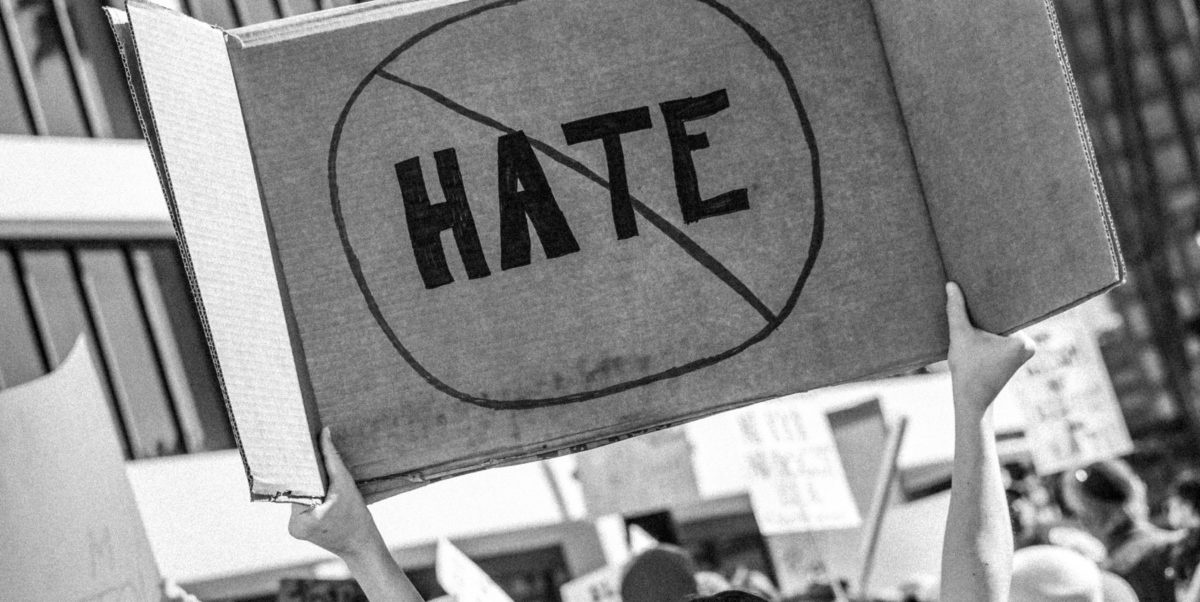This article originally appeared in the Salt Lake Tribune.
Tuesday, Gov. Gary Herbert proudly signed Utah’s new hate crime bill into law. It was a legislative effort that stalled for a number of years, but grew wings after the infamous attack at Lopez Tires, where a man brutally beat an 18-year-old and his father with a metal pole, shouting “I’m here to kill a Mexican.”
The new hate crime law allows for increased sentencing in horrific cases of racial violence like this one. At the same time, it muddies the meaning of a hate crime by stretching into areas far beyond what most of us would normally consider.
Many Utahns are rightfully relieved that the state can now treat crimes motivated by prejudice more seriously. Hate crime laws are an important tool in protecting public safety. They can lead to increased crime reporting from members of vulnerable communities. They reflect our lived cultural realities and ensure that serious offenders don’t get off with a slap on the wrist.
But hate crime laws aren’t supposed to apply to everyone — they are meant to offer additional protection to members of a targeted community who aren’t sufficiently protected by a facially neutral law. A hate crime is an offense against a member of a historically persecuted group, committed solely because of a person’s membership in that group. With the exception of religion, membership in a given group is generally outside a person’s control.
Utah’s new law includes many traditionally protected categories: ancestry, disability, ethnicity, gender identity, national origin, race, religion, sex, and sexual orientation. Homelessness, though not a conventional protected category, also fits here: homeless individuals are sometimes attacked because of their homeless status, and being homeless is not typically a choice.
However, Utah’s law also includes many other categories that should not merit special protection: age, familial status, marital status, matriculation, political expression, military service, emergency response and law enforcement. These groups are all important, but they shouldn’t be included in a hate crime law because they have not been victims of systematic persecution. They are already sufficiently protected under the law. In fact, Utah already increases penalties for attacks against law enforcement officers and military servicepeople.
These extra categories were included because Republican lawmakers could not grasp what a hate crime law is supposed to accomplish or who a hate crime law is supposed to protect. Instead of sticking to a list of historically persecuted groups based on immutable characteristics, legislators added in eight other non-persecuted groups to make the law more palatable to them. Firefighters are not subject to random violence based on their status as first responders. The same is true for married people, college students and every other unnecessary group included in this law. Some lawmakers even pushed to include teachers and ranchers. Not because teachers are at an increased risk of random violence by anti-teacher zealots — just because legislators like teachers.
The category of political expression was added on the House floor because GOP representatives wanted to “send a message” encouraging political civility. One lawmaker implied she was a hate crime victim because of threatening messages she received after torpedoing a popular bill to reduce LGBTQ teen suicide.
While it was unconscionable that she was threatened, that was a regular crime, not a hate crime. She was not randomly targeted to instill fear in the broader ultra-conservative community; she was targeted because people disagreed with her words and actions as an individual. A hate crime isn’t motivated by dislike for an individual; it’s motivated by dislike for an entire group.
Penalty enhancements are serious business. They are measures of last resort to help members of a community who aren’t already adequately protected under the law. Tossing on extra penalty enhancements willy-nilly dilutes the purpose of a hate crime law and does a disservice to the legitimate categories Utah is trying to protect.
While I am relieved additional sentencing can now be applied in instances of racial, religious, homophobic, or transphobic violence, I am concerned additional sentencing will be improperly applied to cases where there is no history of categorical persecution and no reason for special protection. In a year when Utah made great strides on criminal justice reform, the frivolous parts of this law set us back by introducing sentencing enhancements where they are not appropriate. The watered-down law we are left with has the potential to set us forward and set us back, all at the same time.
This article originally appeared in the Salt Lake Tribune.
Lauren Simpson is the policy director for Alliance for a Better Utah and a graduate of Brigham Young University’s J. Reuben Clark Law School.

